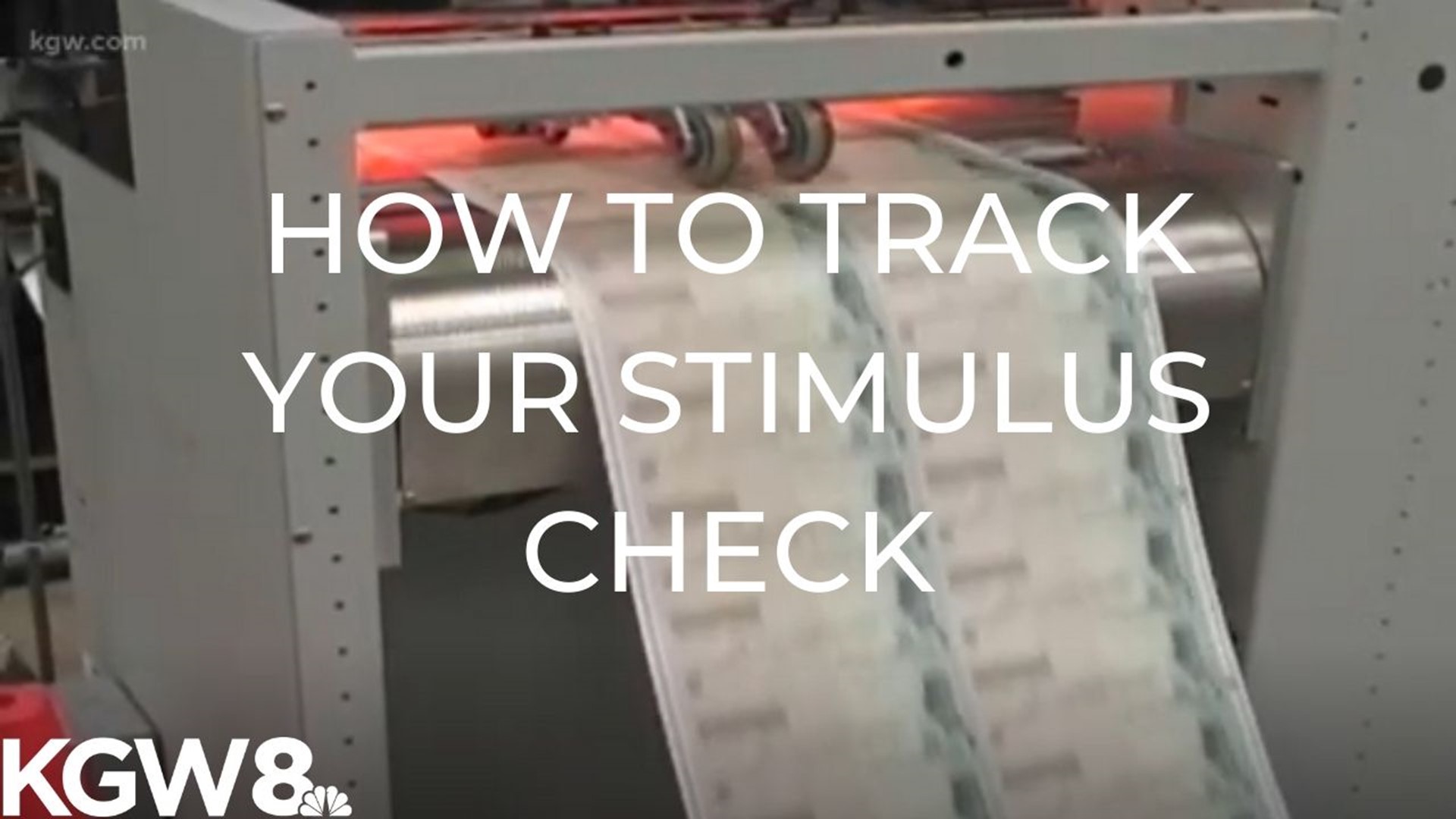PORTLAND, Ore. — A lot of people are anxious to get their economic impact payments, or what some are calling stimulus checks, as part of the federal government's $2.2 trillion relief package.
The Internal Revenue Service has already started depositing the economic impact payments into people's bank accounts. But not everyone has received a payment yet. The IRS said it's trying to get payments to people as quickly as possible.
If you want to find out when your payment is coming, there will soon be an online tool to track it. On April 17, the IRS plans to launch an online tool called Get My Payment. It will let you to check the status of your payment and find out when it will be deposited into your bank account or mailed to you.
If you filed taxes for 2018 or 2019 with direct deposit information, receive social security or disability benefits, your payment will show up automatically in your bank account. You do not need to do anything.
If you filed your taxes for 2018 or 2019, but did not sign up for direct deposit, the Get My Payment app will also give you the option to enroll in direct deposit. If you enroll, you will not have to wait for a check to come in the mail.
If you do not normally file a tax return and want to get the economic impact payment, you will need to go to the IRS website and use the new web tool for non-filers.
You'll be asked for your social security number, name, address, and dependents to determine your eligibility and calculate your payment. It will also ask for your bank account information, so when you do this, make sure you follow the link for non-filers from the IRS website.
The IRS is already warning of scammers trying to steal people's information.
Once they've sent your payment, the IRS will mail you a letter within 15 days that says how the payment was made and how to file a report if you did not get it.
KGW has also heard from people asking what to do if there is a mistake with their payment amount? One Portland father said he received his direct deposit, but said he did not get the additional $500 payment he was expecting for his child.
Well, the answer to his question was not so clear. A local spokesperson for the IRS said privacy laws prevent them from discussing any one case in particular.
They also said they are not answering questions about these payments. Instead, they referred us to the National IRS Media Line and the U.S. Treasury Department Media Line, but no one has returned our calls yet.

